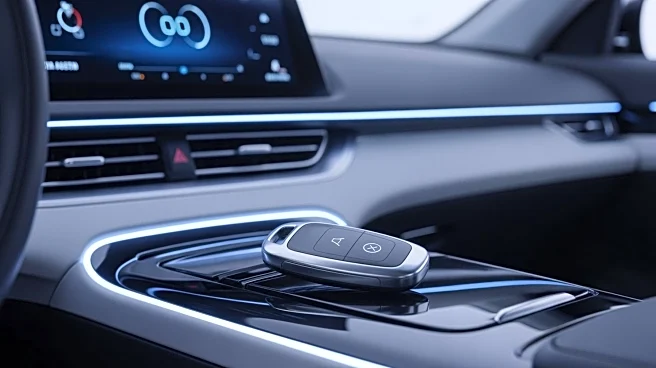What's Happening?
The self-drive car rental market is projected to grow significantly from USD 28.253 billion in 2025 to USD 38.932 billion by 2030, reflecting a compound annual growth rate (CAGR) of 6.62%. This growth is driven by increasing consumer demand for flexible
mobility solutions, technological integration, and sustainable transportation options. The market study provides a comprehensive analysis of industry dynamics, highlighting the impact of rising tourism, urbanization, and digital booking platforms. Key players such as Enterprise Mobility, The Hertz Corporation, and Turo are leveraging fleet expansion, mergers, and technological innovation to capture market share. Notably, Hertz has adopted AI-driven solutions to optimize operations, while Zoomcar has expanded its electric vehicle fleet in response to eco-friendly demand.
Why It's Important?
The expansion of the self-drive car rental market is significant for several reasons. It reflects a shift in consumer preferences towards more flexible and sustainable transportation options, which could influence urban planning and environmental policies. The integration of AI and IoT in rental operations enhances efficiency and customer experience, setting new industry standards. Companies that successfully adapt to these technological trends are likely to gain a competitive edge, potentially reshaping the market landscape. The growth of electric vehicle fleets within rental services also supports broader environmental goals and government incentives for sustainable transportation.
What's Next?
As the market evolves, companies are expected to continue investing in technological innovations and strategic partnerships to maintain growth. The adoption of subscription-based models and contactless rental processes will likely become more prevalent, catering to changing consumer preferences. Mergers and acquisitions may further consolidate market share, as seen with Enterprise Mobility's expansion efforts. Industry experts will need to balance innovation with cost management to remain competitive in this rapidly changing environment.
Beyond the Headlines
The self-drive car rental market's growth could have broader implications for urban mobility and environmental sustainability. As more consumers opt for rental services over car ownership, cities may need to adapt infrastructure to support increased rental activity. The shift towards electric vehicles in rental fleets aligns with global efforts to reduce carbon emissions, potentially influencing regulatory frameworks and public policy. Additionally, the integration of AI and IoT in rental operations raises questions about data privacy and security, which may require new industry standards and regulations.















